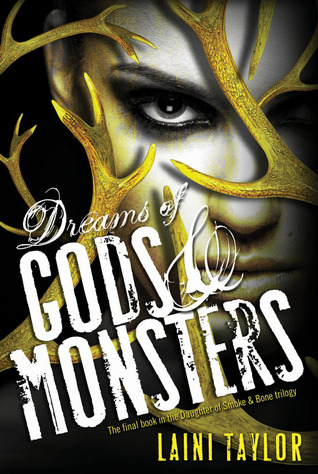Several of the Pitch Wars mentees and alternates are participating in a blog hop about why we wrote our Pitch Wars manuscripts.
Let me back up about three years. I used to write--a lot (I wrote a 250,000 word beast of a novel in high school)--but somehow when I went to graduate school and got married, I stopped writing creatively. I decided to pick it up again when I realized that the novel I was going to write "someday" was never going to happen unless I started now. My sister talked me into signing up for the Writing and Illustrating for Young Readers conference in Sandy, UT. I'd waited so long there weren't many options left for classes, but I lucked into a class by the incomparable Claudia Mills. Since she was teaching middle grade, I started writing a middle grade novel. I finished it, queried it, but it wasn't quite working so I put it aside and started the novel that had been kicking around in my brain.
In my heart, I'm a closet Victorianist. I adore nineteenth-century novels and the nineteenth-century world in all its complexities (I'm under no illusions: despite Victorian prudery, nineteenth-century London had one of the highest per capita prostitution rates in the world). I guess I should clarify I don't love all of it: the sexism, racism, elitism are definitely troubling. But there's something about that world and its literature that I keep coming back to. I love Jane Austen, the Bronte sisters, George Eliot, Elizabeth Gaskell and almost any BBC mini-series built off their worlds.
But I also love a little magic in my world. So I started thinking about what Victorian society would look like with magic--and because I'm interested in people who have to navigate their worlds in unusual circumstances, I also started dreaming of a heroine who didn't quite belong to her world. What if, I wondered, she didn't have magic in a world that venerated it? How would she manage that. And so Anna Arden was born.
I wanted to do more than just play with Victorian London, however, because England has been visited so many times. I lived in Hungary for a year and a half in my early twenties and I'd fallen in love with the people and with their difficult language. In 1848, Hungary was one of many countries to witness a successful revolution (though their indendence lasted less than two years), and I reasoned that if I could get my heroine to Hungary, I could get the best of both worlds: she could be part of that mid-century excitement, but as a relative newcomer to Hungary, she could be experiencing this new world along with the reader. (This also let me throw in an allusion to the Georgette Heyer Regency novels I love: Anna's family is related to Princess Eszterhazy, who was one of the society patrons of Almacks in Regency London, and is, in fact, the reason Anna's Hungarian mother came to be in London in the first place).
When I brought the first few chapters to my critique group, their response was uniformly: Why haven't you been writing this all along? Something about the world and the voice is a much better fit to my writing style and temperament than the MG novel I'd been struggling with.
I won't say this novel has been easy to write. It's involved a lot of research, a lot of drafts, and a lot of learning of craft. But I have loved it.
I'm honored and humbled to be part of the talented writers in Pitch Wars. Be sure to check out the other authors participating in this blog hop. I've no doubt some of these stories will be making their way to a bookstore near you in the next couple of years.

Carleen Karanovic: HOPE ON A FEATHER
Heather Truett: RENASCENCE
Tracie Martin: WILD IS THE WIND
Susan Bickford: FRAMED
Rachel Sarah: RULES FOR RUNNING AWAY
Amanda Rawson Hill: GRIMM AND BEAR IT
Charlotte Gruber: CODE OF SILENCE
Kip Wilson: THE MOST DAZZLING GIRL IN BERLIN
Mary Ann Nicholson: CALAMITY
Nikki Roberti: THE TRUTH ABOUT TWO-SHOES
Anna Patel: EXODUS
K. A. Reynolds: LE CIRQUE DU LITERATI
Susan Crispell: WISHES TO NOWHERE
Ron Walters: THE GOLEM INITIATIVE
Ashley Poston: HEART OF IRON
Mara Rutherford: WINTERSOUL
Janet Walden-West: Damned If She Do
Kazul Wolf: SUMMER THUNDER
S. D. Grimm: WITCHER
Kelli Newby: THORNVAAL
Tara Sim: TIMEKEEPER
Elliah Terry: POCKET FULL OF POPPIES
Alessa Hinlo: THE HONEST THIEF
Rachel Horwitz: THE BOOTLEGGER’S BIBLE
Whitney Taylor: DEFINITIONS OF INDEFINABLE THINGS
Lyra Selene: REVERIE
Natalie Williamson: SET IN STONE
Robin Lemke: THE DANCE OF THE PALMS
Stephanie Herman: CLIFF WITH NO EDGE
Shannon Cooley: A FROG, A WHISTLE, AND A VIAL OF SAND
Ruth Anne Snow: THE GIRLS OF MARCH
Elizabeth Dimit: PHOEBE FRANZ'S GUIDE TO PASSPORTS, PAGEANTS, & PARENTAL DISASTERS
Gwen C. Katz: AMONG THE RED STARS
Jennifer Hawkins: FALSE START
Kelly DeVos: THE WHITE LEHUA
Gina Denny: SANDS OF IMMORTALITY
Natasha M. Heck: FOLLOW THE MOON
Esher Hogan - Walking After Midnight
D.A. Mages: THE MEMORY OF OBJECTS
.jpg)





